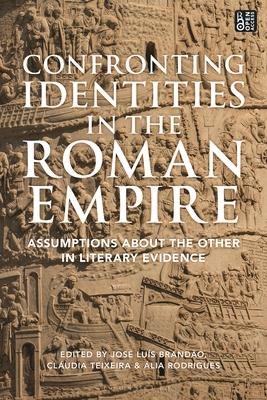Drawing together new research from emerging and senior scholars, this open-access volume presents an up-to-date discussion of these notions in the ancient world, both at the individual and community level. This open access edited volume offers insights into how ancient texts, ranging from the historical and biographical to the oratorical and epistolary, demonstrate the negotiation and renegotiation of otherness, identity and culture.
Roman identity emerged as the result of multiple interactions with real and imagined Others. This volume analyses specific case studies and networks of inclusion and transformation that informed concepts of unity, otherness and cultural identity. In part one, contributors discuss Roman perceptions of communal identity, considering ethnic, geographical, religious, occupational and social factors that informed various ideas of belonging and exclusion. Part two goes further by examining ancient texts from the perspectives of non-Romans, in addition to famous Roman figures who deviated from traditional models of identity. The ebook editions of this book are available under a CC BY-NC-ND 4.0 licence on bloomsburycollections.com.
Book
Confronting Identities in the Roman Empire: Assumptions about the Other in Literary Evidence
(Write a Review)
Hardcover
$127.78
Drawing together new research from emerging and senior scholars, this open-access volume presents an up-to-date discussion of these notions in the ancient world, both at the individual and community level. This open access edited volume offers insights into how ancient texts, ranging from the historical and biographical to the oratorical and epistolary, demonstrate the negotiation and renegotiation of otherness, identity and culture.
Roman identity emerged as the result of multiple interactions with real and imagined Others. This volume analyses specific case studies and networks of inclusion and transformation that informed concepts of unity, otherness and cultural identity. In part one, contributors discuss Roman perceptions of communal identity, considering ethnic, geographical, religious, occupational and social factors that informed various ideas of belonging and exclusion. Part two goes further by examining ancient texts from the perspectives of non-Romans, in addition to famous Roman figures who deviated from traditional models of identity. The ebook editions of this book are available under a CC BY-NC-ND 4.0 licence on bloomsburycollections.com.Hardcover
$127.78